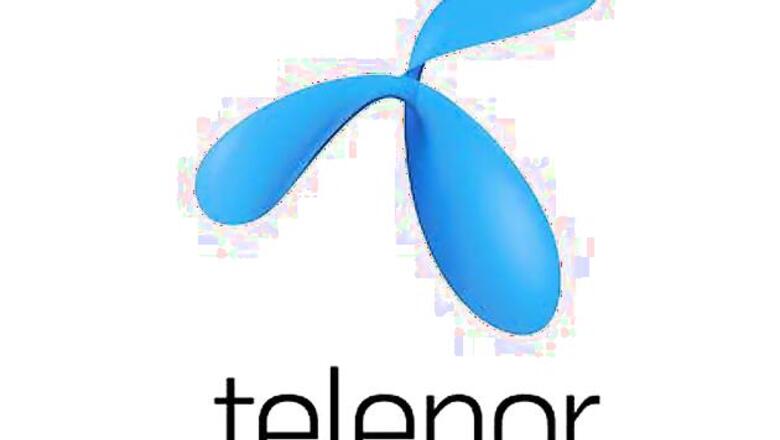
views
Oslo: Norwegian telecom company Telenor said it will write down USD 682 million (Norwegian Krone 3.9 billion) to remove accounting exposure to India due to uncertain business environment in the sector.
The company said its decision follows spectrum auction recommendations by sectoral regulator TRAI after the Supreme Court had cancelled 122 telecom licences, including 22 of the Norwegian firm, in the 2G spectrum case.
"As a precautionary measure, Telenor ASA has decided to write down the remaining fixed and intangible assets in India amounting to NOK 3.9 billion (NOK 2.6 billion after non-controlling interests)," Telenor informed Oslo Stock Exchange.
The write down will be included in Telenor's results for the first quarter 2012, to be presented on May 8, 2012, the statement said.
"After the write down, Telenor has no further accounting exposure related to India as of March 31, 2012." it added. Telenor holds around 67 per cent stake in joint venture Uninor, and rest of it is owned by realty firm Unitech.
The Supreme Court has asked the government to conduct fresh auction for the spectrum by August 31 and licences of the company will remain valid till September 7.
Telenor said Uninor's operational performance in India during the first quarter 2012 has developed according to plan. "Following the Supreme Court's ruling in February to cancel Uninor's licences and the recent recommendation from the Telecom Regulatory Authority of India regarding the 2G licence re-auction, the uncertainty has increased significantly," Telenor statement to OSE said.
It further said, "If the recommendation from TRAI in its current form should be approved by the Department of Telecommunications (DoT), it will be almost impossible to participate in the auction for Telenor."
Telenor said it is working actively with Indian authorities for an acceptable framework for continuing operations.
A similar statement was issued by Telenor Group Executive Vice President and Head of Telenor Asia operations Sigve Brekke in Delhi.
"If these recommendations become policy, then the Government of India will be forcing Telenor Group to exit," Brekke said.
Trai has recommended base price of Rs 3,622 crore for a megahertz of spectrum at pan-India level that is around 10 times higher than the price for 2G licences in 2008, when A Raja was the Telecom Minister.
According to TRAI recommendations, a minimum of 5 Mhz should be allotted, which means that pan-India spectrum in 1800 MHz band will cost Rs 18,000 crore. The reserve price is five times the base price of Rs 3,500 crore for 3G auction.
The steep high prices recommended by Trai has evoked sharp criticism from a majority of telecom service provider in India and the global telecom association GSMA. Brekke said that with these recommendations, the Government will not be following the court order.
"We hope that the Government will look at issues such as only 5 Mhz in the auctions, participation not just for fresh licence seekers but all operators and impractical rollout obligations, in addition to the reserve price, when it devises the auction rules," Brekke said.
TRAI has also recommended that service providers using 800 and 900 Mhz spectrum (being used for 2G CDMA and GSM service respectively) be shifted (through re-farming) to of 1800 Mhz after the licences come up for renewal.
Keeping the provisions of spectrum re-farming, TRAI's calculation show that only 5 Mhz spectrum will be available for auction and hence only one player will be able to win a slot of spectrum for pan-India services.


















Comments
0 comment